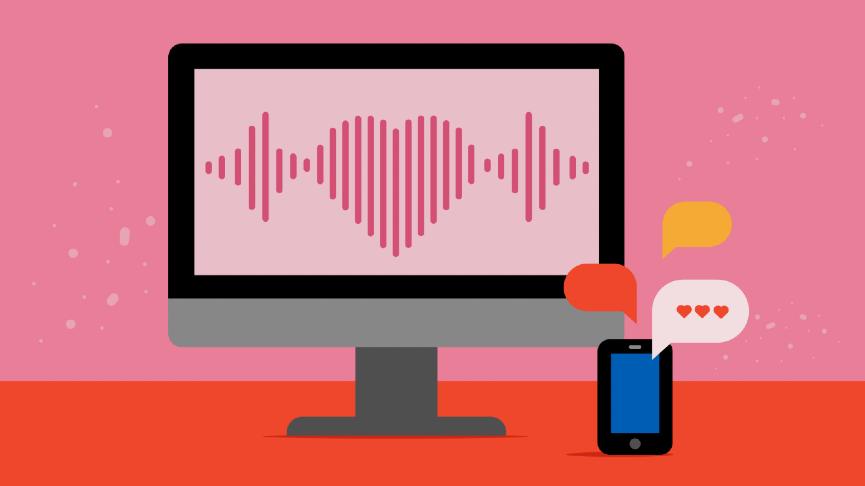Navigating Sex with a Disability

For most humans, having sexual needs and desires is just a normal part of life.
Navigating these desires as a person with disabilities can be complicated. Especially considering the lack of support, conversation, and education around it that is provided. They may be assumed to be asexual, or unable to have sex, or simply have their needs completely dismissed.
We are Diverse
“Disability” is an extremely broad term. Someone with one could have a vision impairment or blindness, hearing impairment or deafness, Autism Spectrum Disorder, mental health conditions, a physical disability, an acquired brain injury, the list goes on.
Like with anyone, there’s no one way to create a broadstroke description of what sex with disabilities means, because there is such a diverse range of people that have disabilities. Many of which you may never know about just by looking at someone.
There are, however, ways to make information and education more accessible. Everyone has the right to pleasure, and to be given tools to understand how to access it.
Care Providers
For many people with disabilities, having a care provider is a necessary part of life. This may be part-time, or full time. These providers may support them with any number of daily life tasks to rehabilitation efforts.
In order to get into a position to have sex, or some variant of it, they may need their care providers to put them in position, clean them up, or monitor them in some way.
This of course can bring up some fine lines of boundaries, comfort levels, and consent (especially if the person is non-verbal).
So it requires care providers to drop their judgments or preconceived notions of sex – who should have it and how – in order to help support their clients in having the best quality of life they can – of which sex can absolutely be apart of.
Sex Workers
There have been growing movements across the globe such as Touching Base, an Australian organization that focuses on connecting sex workers with people with disabilities, to make these services more accessible.
Seeing as both sex workers and people with disabilities face their own set of discriminations, this is a double-edged sword.
By bridging these gaps, this not only makes it possible for people to experience sex who may not otherwise find the opportunity, while also further destigmatizing sex workers, and seeing them as valued members of society.
In countries where sex work is legal, providing sexual services to people with disabilities is seen as a necessary measure of support, and may even be funded by grants or special programs.
This brings up the question – how has societal conditioning programmed so many to believe that the only way that people with disabilities can have sex is by paying for it? There is no right answer, and the choice to hire a sex worker is entirely up to the individual.
It does however reflect widespread attitudes towards who should and shouldn’t be worthy of sex and intimacy.
Utilize Technology
Technology offers a lot of incredible convenience to our lives, one area is in sextech, aka sex toys.
For some people, the use of sex toys means the difference between having a sex life and not. There are many tools out there designed to give pleasure to people who may not be able to thrust, have limited dexterity, or cannot get or maintain an erection.
Remote-controlled vibrators, vibrating cushions, masturbation sleeves, wedge pillows, vibrating wands, and harnesses are all awesome tools to bring in to anyone’s sex life – especially if they have a disability.
Sex Ed
In many places, sexual education is totally overlooked or disregarded for people with disabilities. Oftentimes it won’t even be offered in their curriculum, especially if they are in a specific special education class.
This is incredibly problematic, especially for those who are experiencing sexual desires, but are not given any tools as to how to understand them, basic anatomy, and navigating safe sexual boundaries and practices.
Thanks to this lack of education, rates of STIs and pregnancy are disproportionately higher amongst teens with developmental disabilities.
There are also staggeringly high rates of sexual assault amongst people with disabilities. According to the National Crime Victimization Survey, about half of adults with a cognitive disability will experience at least ten sexually abusive incidents in their life.
One of the first steps towards preventing this is being able to have open conversations about what is and isn’t appropriate sexual behavior, how to draw boundaries, and how to protect themselves against possible abuse.
Sex is Normal
Having these discussions not only normalizes sexuality for people with all kinds of disabilities but opens up the floor to discuss normalizing sex outside of the general narrative of simple penis in vagina.
Sex can and will look different for everyone, and finding ways to experience pleasure towards making it more accessible.
There are all sorts of reasons someone may not fit into the standard heterosexual idea of sex; their sexuality, sexual trauma, reproductive health disorders, or simply because it doesn’t feel right for them.
The more we are able to dissolve our taboos around sex, and view it as a normal part of being human, the easier it becomes to make it accessible, recognized, and respected amongst people who don’t fit in the standard box of what a sexual being looks like.

Natasha (she/her) is a full-spectrum doula and health+wellness copywriter. Her work focuses on deconstructing the shame, stigma, and barriers people carry around birth, sex, health, and beyond, to help people navigate through their lives with more education and empowerment. You can connect with Natasha on IG @natasha.s.weiss.


